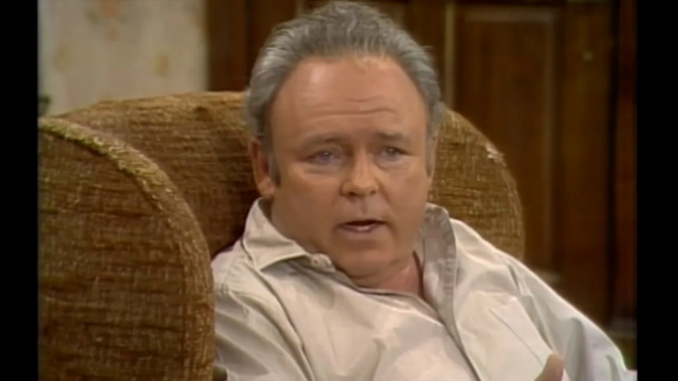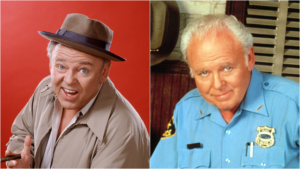
“Archie Bunker couldn’t exist today.” You’ve probably heard this phrase a lot lately, especially after the passing of Norman Lear, the genius behind All in the Family. But here’s the kicker: not only could Archie exist today — we need him. Now, more than ever.
Archie Bunker — the loud, grumpy, and unapologetically bigoted character played by Carroll O’Connor — would surely clash with today’s cultural landscape. But the very fact that this character once had a home on prime-time TV shows just how much we’ve lost when it comes to real conversations about the issues that divide us.
Since All in the Family hit the airwaves in 1971, it turned TV on its head. Gone were the innocent days of family sitcoms where the biggest crises were lost baseballs or middle-child meltdowns. Enter Archie: a working-class guy with a laundry list of grievances. Vietnam protests. Feminists. “Coloreds” (yes, that word, and worse). The show pushed boundaries by laughing at Archie’s prejudices, but also forcing viewers to confront them. The result? All in the Family became the most-watched TV show of the early ’70s, a record it held for years.
And, oh, the reactions it sparked! Liberals cringed at Archie’s vile rants, while conservatives championed him as a voice of reason in a changing world. CBS even had to run a disclaimer before the show aired, warning viewers that it was all a joke meant to highlight society’s absurdities. But beneath the humor, there was real commentary on the fractures running through America.
Fast-forward 50 years, and the echoes of Archie’s complaints still ring out. The Great Replacement theory. Transgender athletes. Electric stoves. Today, it feels like Archie’s rants could be lifted directly from a Fox News monologue. But, just like back then, it would spark a cultural firestorm. It’s easy to imagine half of America defending Archie, saying he’s just “speaking the truth” while the other half calls for his cancellation.
In 1972, All in the Family wasn’t just entertainment; it was a national conversation. Over 50 million people tuned in each week, arguing about it in living rooms, workplaces, and beyond. It was a moment where people from opposite sides of the political spectrum could yell at each other, but at least they were yelling in the same room.

Today, that unity feels impossible. We live in a fragmented world of cable news echo chambers, social media silos, and online outrage. Gone are the days of water cooler debates. In their place? Silence. Distrust. A total breakdown of civil discourse. Can you imagine a moment where liberals and conservatives laugh and debate together like they did during All in the Family?
We don’t just need another sitcom. We need a platform where the messy, uncomfortable issues of the day — racism, sexism, political correctness, and more — can be addressed head-on, with humor as the bridge, not the barrier. Archie’s jokes weren’t just jokes; they were an invitation to engage, to confront the divisions that still tear at the fabric of American life.
Archie Bunker was, in his own way, a mirror — holding up a reflection of America’s faults, prejudices, and contradictions. But through the absurdity, viewers could see how ridiculous some of those beliefs were. That’s the magic of All in the Family — it gave us a safe space to argue, laugh, and maybe even learn something along the way.
Now, imagine a world where we could do that again. Where people on opposite ends of the spectrum could still come together, even if it’s just for 30 minutes a week. The world’s a mess. But maybe, just maybe, a little bit of Archie Bunker could help us find our way back to something resembling dialogue.
The question is: Are we ready for it?
